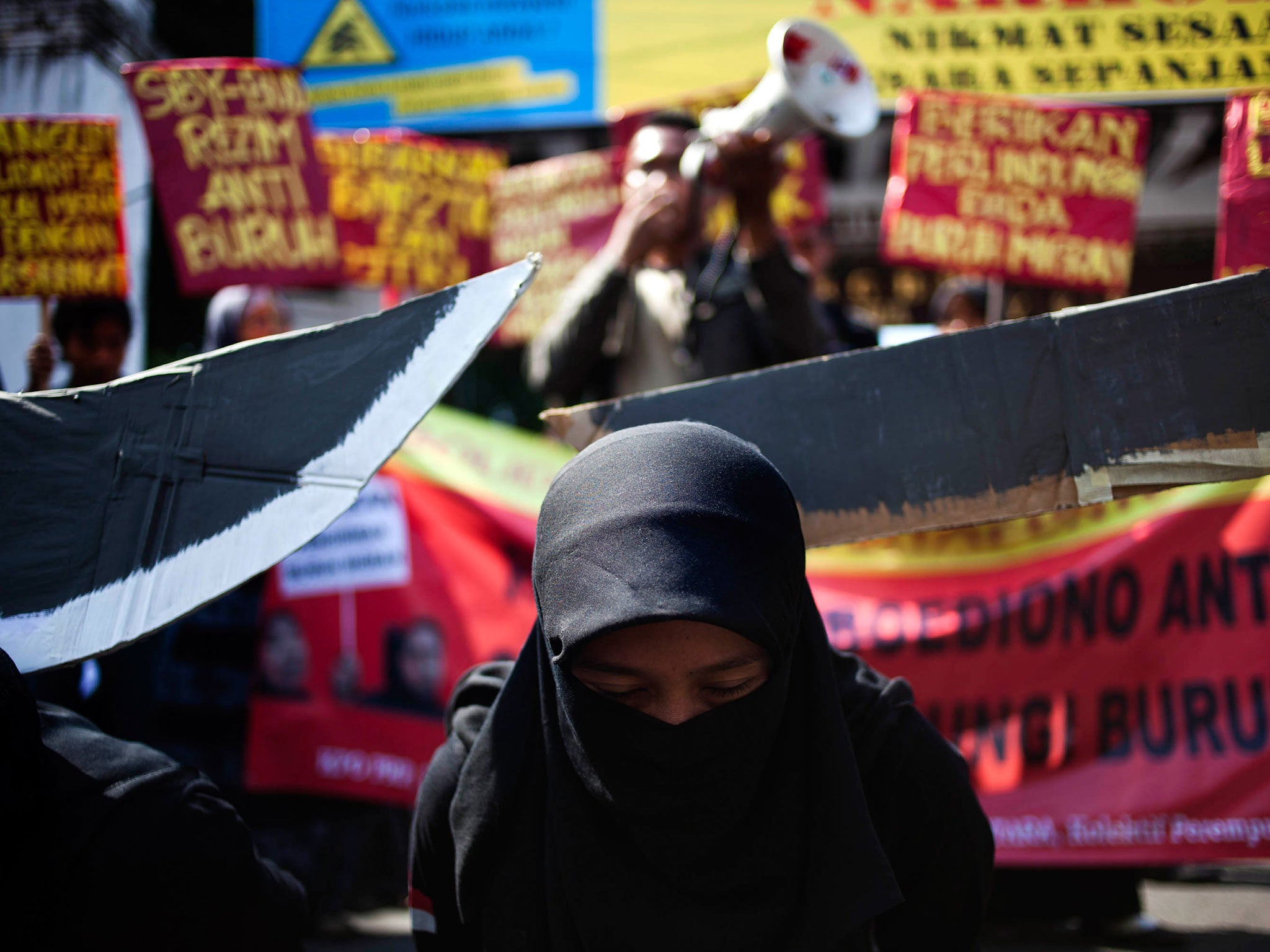Saudi Arabia ends 2015 with one final execution
Last year, Saudi Arabia executed 158 people - the highest number in two decades

Your support helps us to tell the story
From reproductive rights to climate change to Big Tech, The Independent is on the ground when the story is developing. Whether it's investigating the financials of Elon Musk's pro-Trump PAC or producing our latest documentary, 'The A Word', which shines a light on the American women fighting for reproductive rights, we know how important it is to parse out the facts from the messaging.
At such a critical moment in US history, we need reporters on the ground. Your donation allows us to keep sending journalists to speak to both sides of the story.
The Independent is trusted by Americans across the entire political spectrum. And unlike many other quality news outlets, we choose not to lock Americans out of our reporting and analysis with paywalls. We believe quality journalism should be available to everyone, paid for by those who can afford it.
Your support makes all the difference.Saudi Arabia finished 2015 by beheading Abdulatif Zapanta, a Filipino National, on Tuesday - after he had spent nearly six years on death row seeking a pardon.
Last year, the Gulf state executed 158 people, the highest number in two decades, according to Human Rights Watch.
The executions represent a 75 per cent increase from the previous year, when 90 people were killed by the state.
Abdulatif Zapanta, 35, was convicted in 2010 of murdering his Sudanese landlord, after a dispute over rent money.
He claimed he had acted in self-defence, but was handed a deaht sentence under Saudi Arabia's strict interpretation of Islamic law.
His family failed to raise a $1 million diya - "blood money" - payment, which can be given to a victim's family in exchange for a pardon.
Saudi Arabia is one of the few countries which still stages public executions, enforcing a strict interpretation of Sharia.
The death penalty is applied in a wide range of cases, including apostasy and witchcraft.
International condemnation followed the news Saudi Arabia had sentenced six teenage offenders to death after they attended rallies in 2012 calling for equal rights for the Shia minority.
Ali Mohammed al-Nimr, who was 17 when he was detained, is due to be crucified - his headless corpse displayed in public for several days.
Abdullah al-Zaher, who was 15 when he was arrested, could be beheaded at any moment, making him the youngest person to be sentenced to death.
Subscribe to Independent Premium to bookmark this article
Want to bookmark your favourite articles and stories to read or reference later? Start your Independent Premium subscription today.
Join our commenting forum
Join thought-provoking conversations, follow other Independent readers and see their replies
Comments